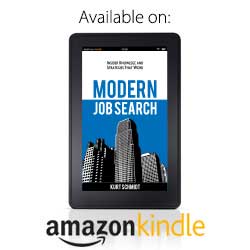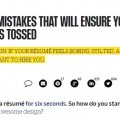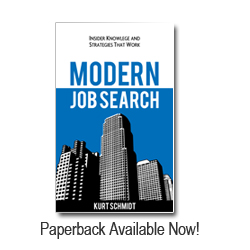
Quora: How can I become a better interviewee when job hunting?
By Kurt Schmidt In Blog On January 17, 2017
Quora Question: How can I become a better interviewee when job hunting? I am qualified but believe I interview badly.
*****************
Everyone knows that they are supposed to “prepare” but what does that mean?
First, yes, do the obvious things: Do the company and job research, dress for the part, ensure that you’ll be on time (early), and generally know what you’re getting into.
However, if you really want to learn how to interview well you’ve got to develop another skill: Empathy. I could go on and on about how much more pleasant our world would be if people were better at putting themselves in the shoes of others but I’ll keep this focused on job interviews.
Why does the hiring manager want to hire someone? Have you thought about that? Okay, so it sounds simple, he or she, the hiring manager, needs help! All jobs come as a result of someone, somewhere realizing that they need help solving a problem, pursuing a goal or meeting a challenge and that they have to go outside to get it. Recognizing that a hiring manager is a person who needs help is the first step in changing your perspective. Your potential job is their problem, goal or challenge. The key to learning how to interview successfully starts with learning to focus on them and their needs first. This is a strategy not a surrender.
One of the most important things any job seeker should learn is that the hiring process has steps that should be followed in a specific order. The first step is creating interest. Candidates create interest on the part of employers by demonstrating that they can help them, clearly and specifically, and focusing as much as possible on how to address their needs. This is done by asking insightful, researched questions about what they want to accomplish, pursue or resolve. Successful interviewees know this and have the confidence to treat the hiring company like a customer, avoid overselling themselves and postpone discussions about their own needs.
At this stage, the interview process continues based on the potential employer’s continued interest and hopefully growing belief that you really can help. Take special notice of the pronouns: “Their” as in their needs, goals and problems – not “your” as in your goals, requirements or objectives. To interview well, focus on them. Try to imagine being the hiring manager. Try to understand his or her problems and, literally, the kinds of things that would make them happier at work. If you need help figuring out how to do this, take the title of the job add the word “Manager” or “Director” at the beginning or end, get on LinkedIn and find people who have jobs that could own the job you’re seeking. Read about what they do and imagine the kinds of problems they might have and how you could help solve them. View it from their perspective.
Good interviewees know that the next stage is the one where their own interests come into play. Having the patience, maturity and confidence to wait until a potential employer reveals that they are seriously interested is what separates candidates who get offers from candidates who don’t.
The goal of any job search is to put yourself in a position to be able to make a decision. This is only possible if you get to the stage of the process where an offer becomes imminent. At any other point, the potential employer retains all decision making power (assuming you want the job). Receiving the signal that a potential employer intends to make an offer represents a tangible transfer of power and it is only then that candidates should circle back to their own needs, goals and objectives. Everything that happens before an offer is imminent (and in fact, before it is accepted) is part of the job interview.
Follow me on Quora for more answers to your questions. And if you want, fire off your own question!
*****************
Kurt Schmidt is the author of “Modern Job Search” and the President and Owner of Capto Systems, an executive search firm focused on supply chain and strategic sourcing jobs in manufacturing and energy. He’s also an aspiring photographer and traveler. If you’re really looking for a job, you need this book!








